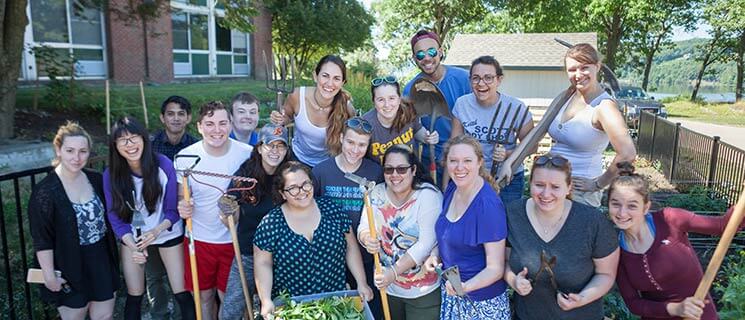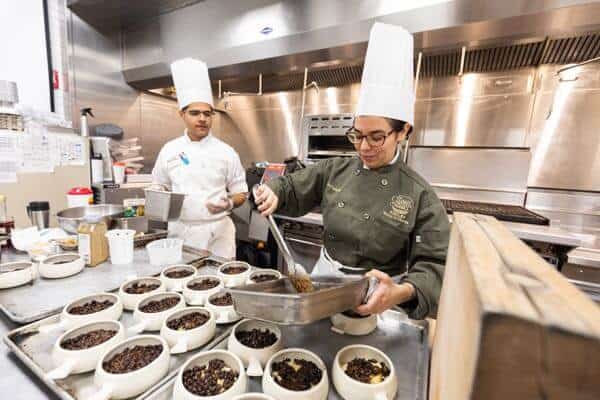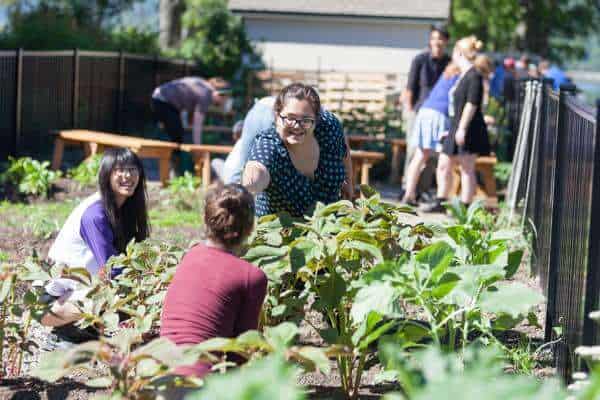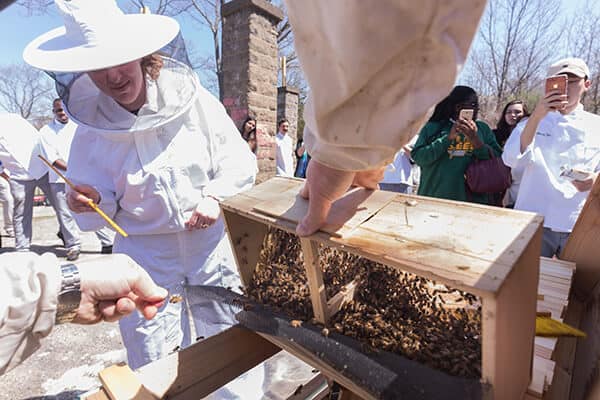CIA Green Campus Initiative

Ensuring a clean, healthy planet is one of the most important goals of the food industry. Launched in 2010, The Culinary Institute of America’s Green Campus Initiative demonstrates our own commitment to this ideal as students, faculty, and staff collaborate to make our college campuses even more sustainable and eco-friendly in many ways.
Menus of Change Kitchen
Inspired by the principles of Menus of Change®, a joint initiative with the Harvard T.H. Chan School of Public Health, the CIA introduced the Menus of Change Kitchen at the New York campus to help create healthy, delicious, plant-forward meals for our students, while mitigating waste. Thanks to a grant from The Statler Foundation, we hired Statler Sous Chef Alexandra Ceribelli ’19 to transform surplus food from our kitchen classrooms, restaurants, and storeroom into crave-worthy menus.


Promote sustainable agriculture by purchasing local ingredients and growing them on campus for use in classes, adding sustainability themes to CIA activities, and serving fair trade coffee in our dining facilities. Plus, students have plenty of opportunities to work hands-on in our gardens and related areas on campus.

Incorporate sustainability concepts into CIA coursework, like in the Applied Food Studies bachelor’s program—which features classes on food policy, ecology of food, and food systems—and the Farm-to-Table Concentration in which students actively engage with local farmers and producers.
More ways we’re being green:
- Transform our campuses into eco-friendly hubs that employ solar, water, and renewable materials strategies, managing storm water and mitigating the “urban heat island effect” through garden roof technology, and installing geothermal heat pumps and energy recovery ventilators inside student residence lodges.
- Conserve energy to reduce our carbon footprint by conducting lighting audits, reducing the need for automotive travel by promoting high-definition videoconferences, and installing energy-efficient bulbs, motion sensors, and kitchen ventilation controls.
- Manage our resources by operating a composting and single-stream recycling program, converting used cooking oil into biodiesel fuel to power campus vans, using a Natura water system and reusable glass bottles in our restaurants, and employing electrolyzing cleaning systems.
- Reduce waste through our Food Recovery Program, in which any leftover, ready-to-eat food that cannot be utilized on the New York campus goes to the Hudson Valley Food Bank. The CIA donated approximately 22,000 of food in 2019. In addition, the college’s three-bin waste system in all kitchen classes has saved thousands of pounds of compost from being diverted to landfills.
- Maintain an active Sustainability Committee that generates much of the inspiration and support for the campus initiatives that take place at the college. This group of administrators, students, chefs, and professors develops solutions to improve the CIA’s industry practices throughout the college’s food cycle.
Green Appeal
CIA Green Campus Initiative has already earned numerous accolades, including:
- Farm-to-Table Award from The Valley Table
- Green-Friendly Organization Headliner Award from the Dutchess County Regional Chamber of Commerce
- Gold-level LEED certification from the U.S. Green Building Council (Vineyard Lodge II at Greystone)
- Harvest Award from Glynwood
In addition, the CIA is a member of the Environmental Consortium of Hudson Valley Colleges and Universities.